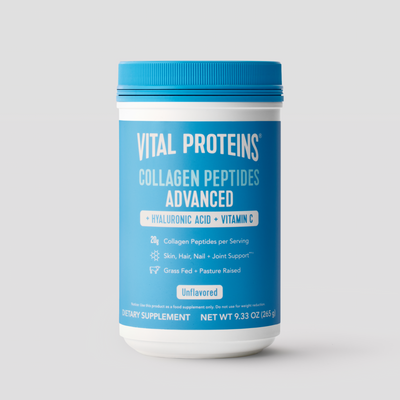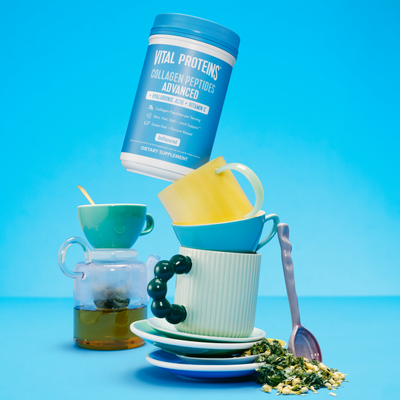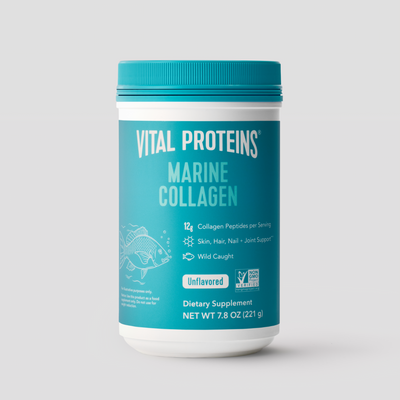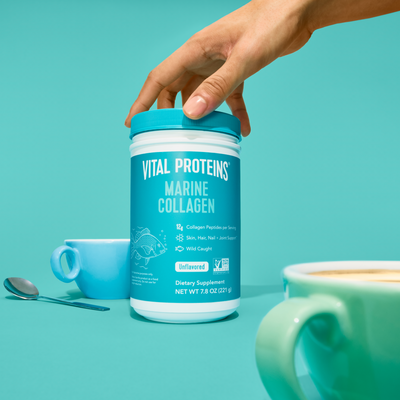Molly Galbraith may be inspiring and helping women become more body-confident through her company Girls Gone Strong, but years ago, she was fighting her own battle with negative self-talk.
It all started when Galbraith was 7 years old. She distinctly remembers nit-picking her body in front of a mirror during gymnastics practice. “In my reflection I saw my arms in the mirror and thought, ‘Ugh! Gross. My arms look like boy arms!’ I know now that what I was seeing in the reflection was the curve of my bicep muscle,” remembers Galbraith.
This kicked off a 20-year relationship with her body that also included 5 years of rigorous training and restrictive dieting in order to participate in bikini fitness competitions. But in 2008, after her last competition, Galbraith began gaining weight and experiencing fatigue and malaise, among other symptoms. It wasn’t until spring 2009 that she was officially diagnosed with Hashimoto’s, an autoimmune disorder, polycystic ovarian syndrome (PCOS) and adrenal dysfunction.
“Suddenly my body wasn’t responding to diet and exercise like it used to, and for the first time in five years I felt completely out of control of my body,” recalls Galbraith.

She spent the next three years attempting to get her health in check. Everything seemed to be going well for Galbraith; her weight stabilized and she was managing her symptoms.
But a slew of unfortunate experiences halted her progress. She lost her father unexpectedly to pneumonia in January 2012. Then, she injured her back, and almost a year later, ended a six-year relationship. This left her without a house and business (both of which she had shared with her then-boyfriend.)
Nutrition and exercise weren’t at the top of Galbraith’s priorities list at this time, understandably, so she began dieting in early 2013. But something changed that spring. Galbraith became fed-up with “the diet rollercoaster.” She came to two realizations: “I wasn’t going to diet anymore. I was going to heal my relationship with food and my body.”
That shift in mindset changed Galbraith’s life, and her company, Girls Gone Strong, also contributed to her evolution. Girls Gone Strong provides evidence-based, body-positive health and fitness information to women, and certifies health and fitness professionals in coaching and training women. “Running Girls Gone Strong has profoundly impacted every part of my life including helping me heal my relationship with food and my body,” Galbraith tellsLively. It also helped her “recognize that ‘body image’ is about so much more than how our bodies look. It’s also about feeling safe, comfortable, capable, resilient and in charge of your body.”

Molly Galbraith’s 2 Tips for Achieving Body Confidence
Change Your Mantra
“Start tuning in to how you’re thinking and speaking about yourself, and then choose something different. Whether you think you do or not, you have a mantra, something you repeat to yourself over and over throughout the day. For many women, these mantras sound like, ‘That cellulite is so gross!’ ‘Ugh. My thighs are huge’ and ‘I work out so hard. Why do my arms still jiggle so much?’
“These ‘mantras’ are so powerful because when they play over and over again in your head throughout the day, they become something you really believe. The first step to changing your mantra is becoming aware of it. Simply start noticing how often you think or say something nasty about yourself. For the first couple of weeks, just notice. You don’t have to do anything about it other than that. Once you’ve started to become aware of your self-talk, instead of switching from, ‘That cellulite is so gross!’ to ‘I love my legs!’ which can feel like too big of a stretch for some women, start with something neutral. Instead of, ‘That cellulite is so gross!’ try ‘This is what my legs looks like today.’ Really practice shifting your perspective from something negative to something neutral. And then when you get comfortable with that, shift to something more positive.”
Surround Yourself with Different Body Types
“Instead of spending time viewing bodies in mainstream magazine or media, expose yourself to a wider variety of bodies to help expand your definition of beauty. As activist Erin Brown says, ‘The trouble isn’t in valuing beauty. It’s in defining it in a context so narrow that we can’t possibly achieve it. For women who want to value beauty (because not all do) I encourage them to expand their definition to include themselves.'”

















